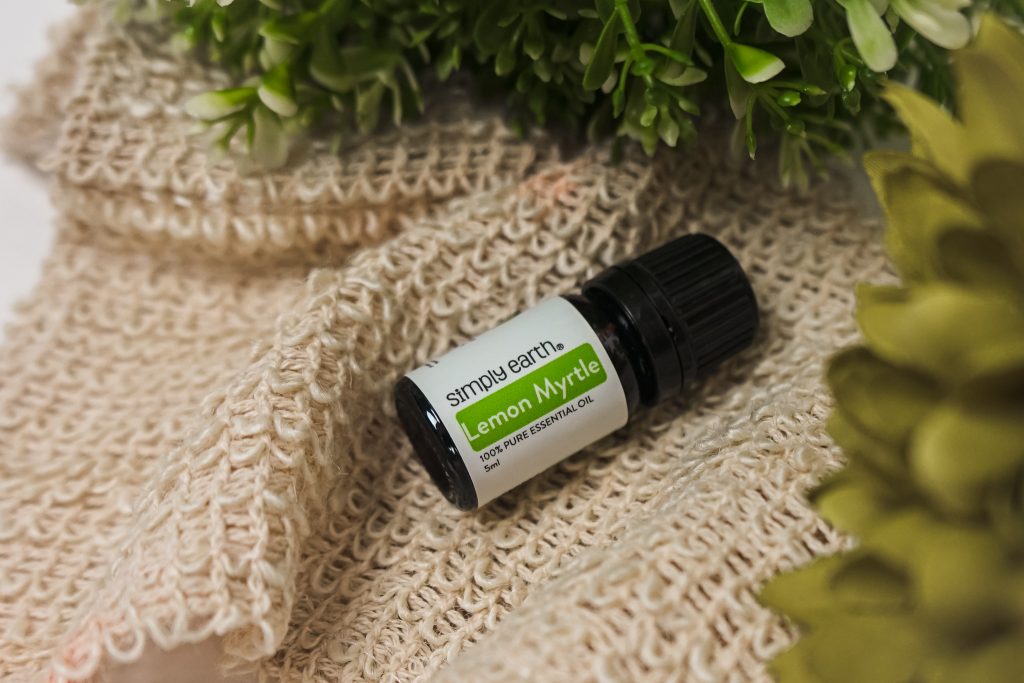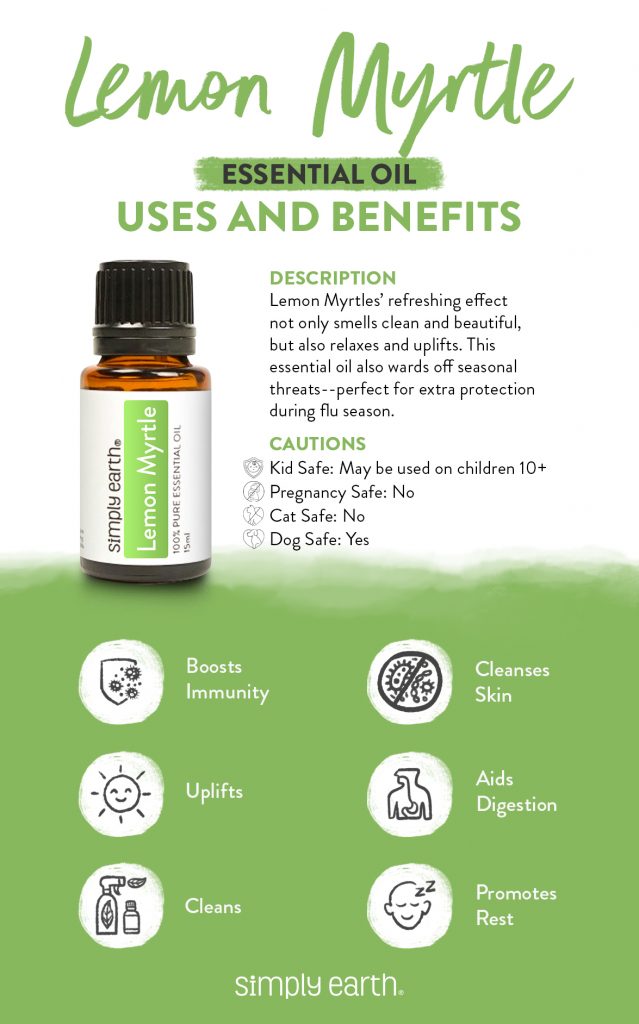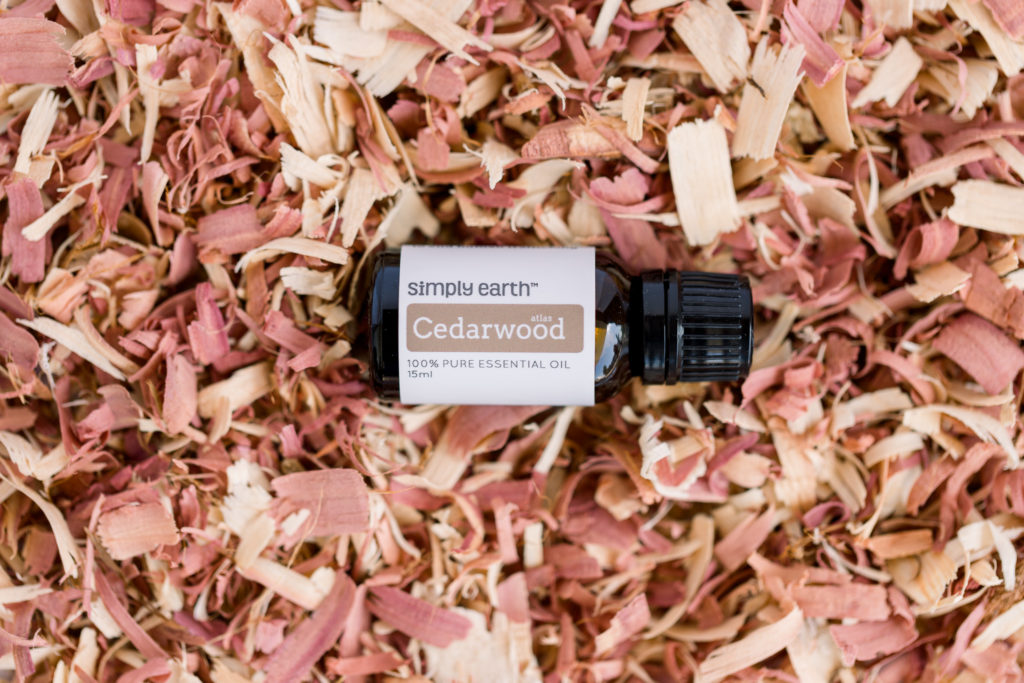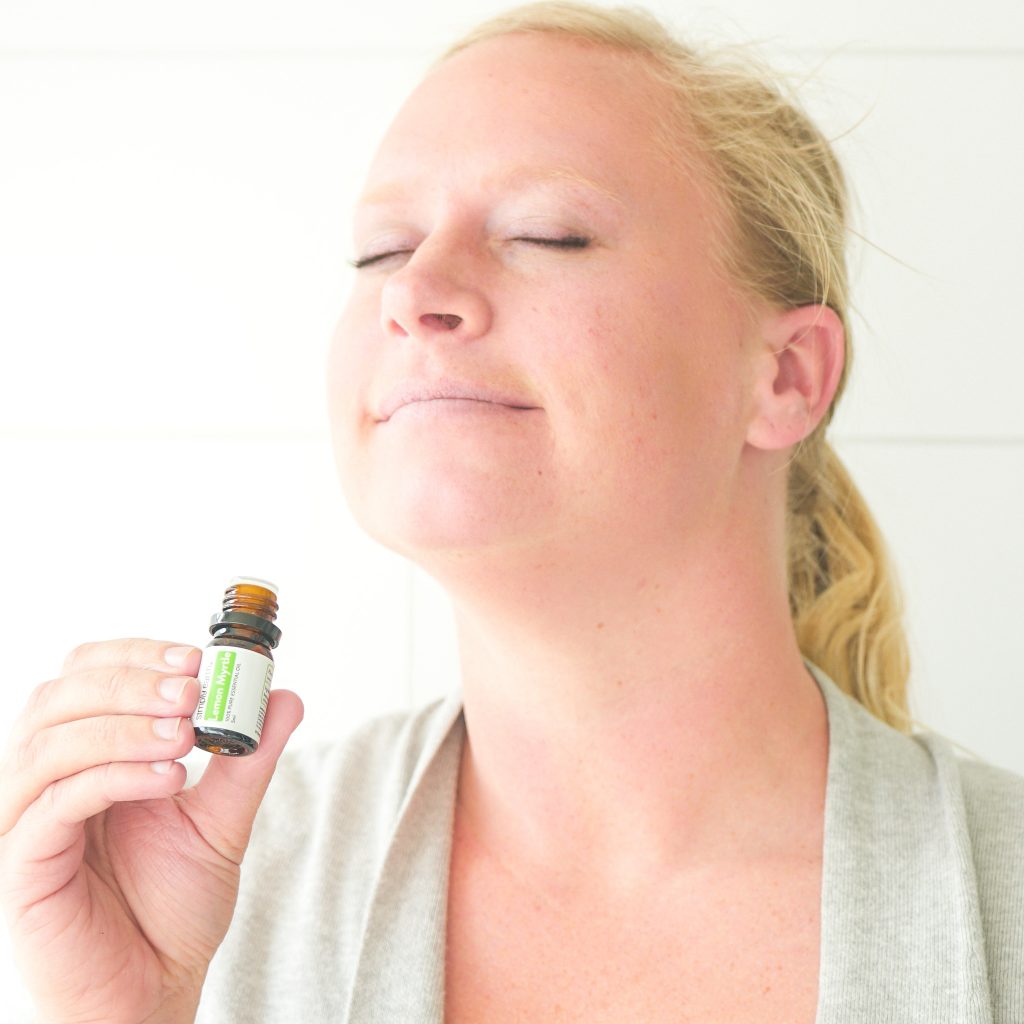Lemon Myrtle Essential Oil derives from the steam-distilled leaves of the small shrubby tree that grows in, and is native to, Australia. The lemon myrtle tree is a beautiful sight to behold. They have an elegant canopy form, beautiful flowers, and a delightful fragrance, making them a dramatic, ornamental plant. But, aside from being an ornamental plant, lemon myrtle produces a significant essential oil that offers many health benefits. It’s no surprise that Lemon Myrtle Essential Oil has been popular for years. It’s known for its incomparable fragrance and medicinal value. Since then, Lemon Myrtle farming has been very successful.
Lemon Myrtle Essential Oil Uses & Recipes

Boosts Immunity
Research1 shows that Lemon Myrtle Essential Oil may help reduce oxidative stress, which means it can support a healthy immune system. In turn, this may also help support the body during seasonal threats by providing an additional line of defense against environmental stressors.
Soothes Respiration
If you feel under the weather, the last thing you want is to be surrounded by harmful bacteria. Lemon Myrtle Essential Oil has antibacterial and antifungal properties per this study2, making it a perfect addition to the diffuser when you experience a cough or congestion. Lemon Myrtle Essential Oil will help your space remain clean and clear, thus soothing respiration.
Cleans
According to this study3, Lemon Myrtle Essential Oil has significant antimicrobial activity against multiple organisms. For this reason, Lemon Myrtle is an ideal choice for use in the home and can help keep surfaces clean and free of harmful bacteria. Lemon Myrtle Essential Oil also has a refreshing scent that can help to brighten up any space.
Cleanses Skin
The same study3 also suggests that since Lemon Myrtle possesses antibacterial properties, it is helpful to formulate topical antimicrobial products. It’s no surprise that Lemon Myrtle Essential Oil is among the ingredients for multiple skincare products, including soaps, lotions, and serums. You can also add it to your DIY skincare recipes.
Aids Digestion
Lemon Myrtle Essential Oil aids digestion, which makes it easier for the body to break down food and absorb nutrients. It is a helpful oil for those looking to manage their weight as it increases the metabolic rate, which helps to reduce weight gain, according to this study4.
Moreover, Lemon Myrtle Essential Oil also has potent soothing effects, which could be a potential therapeutic agent in calming inflamed digestive tracts, as suggested by this study5.
Promotes Rest
Some say Lemon Myrtle Essential Oil smells more lemony than lemon, but ironically, its citrus scent helps me unwind and set a restful environment. Its fresh, lemony aroma helps calm and center, while encouraging relaxation. Enjoy it in a diffuser, a massage oil, or a bath.

Lemon Myrtle Essential Oil Blends Well With

Lemon Myrtle Essential Oil holds a strong crisp aroma of mixed lemon and lime. Essential oil lovers know it possesses the cleanest, scintillating aroma in its family. It blends well with spicy, woody, and floral essential oils like Amyris, Basil, Bay, Black Pepper, Cedarwood (Atlas or Himalayan), Eucalyptus, Lavender (40/42 or Bulgarian), Lime, Neroli, Rosemary, Sage, and Tea Tree Essential Oils.
What’s the Science Behind This Oil?
When it comes to essential oils, their natural chemical constituents ensure they work as effectively as possible. These constituents give the oil its beneficial properties. They also contribute to the oil’s refreshing scent. So, if you’re ever looking for an oil that lives up to the hype, make sure to check out its chemical composition.
Citral
Citral is a monoterpene made up of two isoprene units- Geranial and Neral. It is responsible for 90–98% of lemon myrtle. It has a strong lemon (citrus) scent and has shown promising insecticidal and antifungal activity, has ‘strong’ antimicrobial qualities, and more.
Limonene
Limonene is a common component in the oil of citrus fruit peels. It is commonly used as a fragrance ingredient and botanical insecticide or herbicide. It is also used for cleaning purposes, and more.
What Earthies Are Saying About It
What I Love About Lemon Myrtle Oil

I love to use Lemon Myrtle Essential Oil in my homemade cleaning recipes. It’s a great way to keep my home smelling fresh and clean. Not only does it smell amazing, but it also helps kill bacteria and viruses. I always feel confident that my home is clean when I reach for my Lemon Myrtle Essential Oil.
Things to Remember When Using This Oil

Always dilute an essential oil when using it on the skin. This essential oil is unlikely to cause skin irritation when diluted properly. If the oil has been oxidized (left with the cap off for long periods of time) it is more likely to cause skin irritation. Check out this dilution chart for diluting this essential oil properly.

This oil is generally not safe to use if you are pregnant. Consult your doctor prior to use.

Cats may find this oil irritating. However, we do not expect your cat to be disturbed if you use this oil on yourself. Just be mindful of your pet’s behavior. For more information on using essential oils with cats, check out this blog post.

Cats may find this oil irritating. However, we do not expect your cat to be disturbed if you use this oil on yourself. Just be mindful of your pet’s behavior. For more information on using essential oils with cats, check out this blog post.

This essential oil is generally safe to diffuse and use topically on dogs. For more information on using essential oils with dogs, check out this blog post.
We don’t recommend ingesting essential oils unless under the direction of a doctor certified in aromatherapy. For more information on why we don’t ingest essential oils check out this blog post.
*Please note: This post is a compilation of suggestions made by those that have extensively used essential oils and has not been verified scientifically with clinical tests nor reviewed by medical experts. It is anecdotal information and should be treated as such. For serious medical concerns, please consult your doctor. The statements given in this blog post have not been verified by the FDA
Give This Wonderful Oil A Try!

Lemon Myrtle Essential Oil is a must-have in any natural enthusiast’s collection. With its great aroma and so many amazing uses, it is worth every drop. Be sure to keep this information about Lemon Myrtle handy the next time you’re looking for an all-natural solution to a problem. Do you have any favorite recipes that use Lemon Myrtle Essential Oil? We’d love to hear about it on social media by tagging @fromsimplyearth with #imadethis and in the comments below!
Are you ready to master essential oils? You get FREE access to our Hero Course if you subscribe to our Monthly Essential Oil Recipe Box. With it, you’ll receive 4 Pure Essential Oils, 6 Aromatherapist-Created Recipes, and FREE Essential Oil Recipe Supplies for Life—all delivered directly to your door each month for just $44.99/month. Plus, we’ll give you a FREE Big Bonus Box!
Don’t miss out on the all-natural fun that comes with the Recipe Box; get yours today: Subscribe now to learn how to use essential oils!
References:
- Modak T, Mukhopadhaya A. Effects of citral, a naturally occurring antiadipogenic molecule, on an energy-intense diet model of obesity. 2011 May
- Taylor, R. Lemon myrtle, the essential oil. 1996
- Hayes AJ, Markovic B. Toxicity of Australian essential oil Backhousia citriodora (Lemon myrtle). Part 1. Antimicrobial activity and in vitro cytotoxicity. 2002 Apr
- Modak T, Mukhopadhaya A. Effects of citral, a naturally occurring antiadipogenic molecule, on an energy-intense diet model of obesity. 2011 May
- Shim SY, Kim JH, Kho KH, Lee M. Anti-inflammatory and anti-oxidative activities of lemon myrtle (Backhousia citriodora) leaf extract. 2020 Jan 27.

